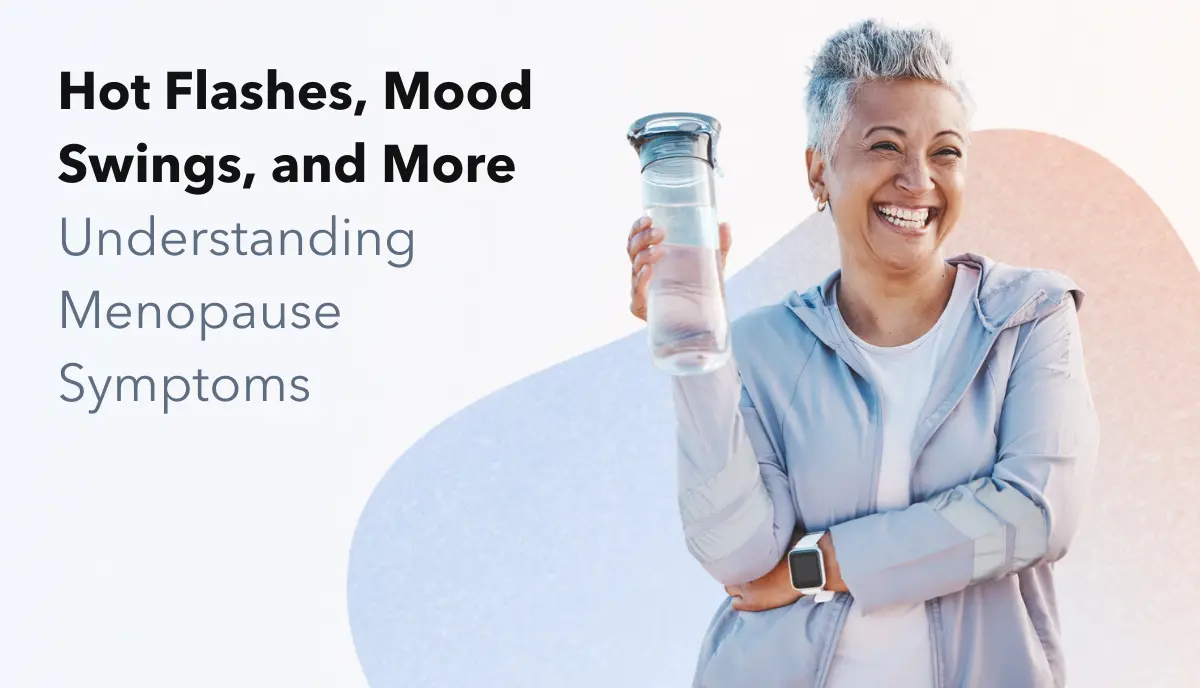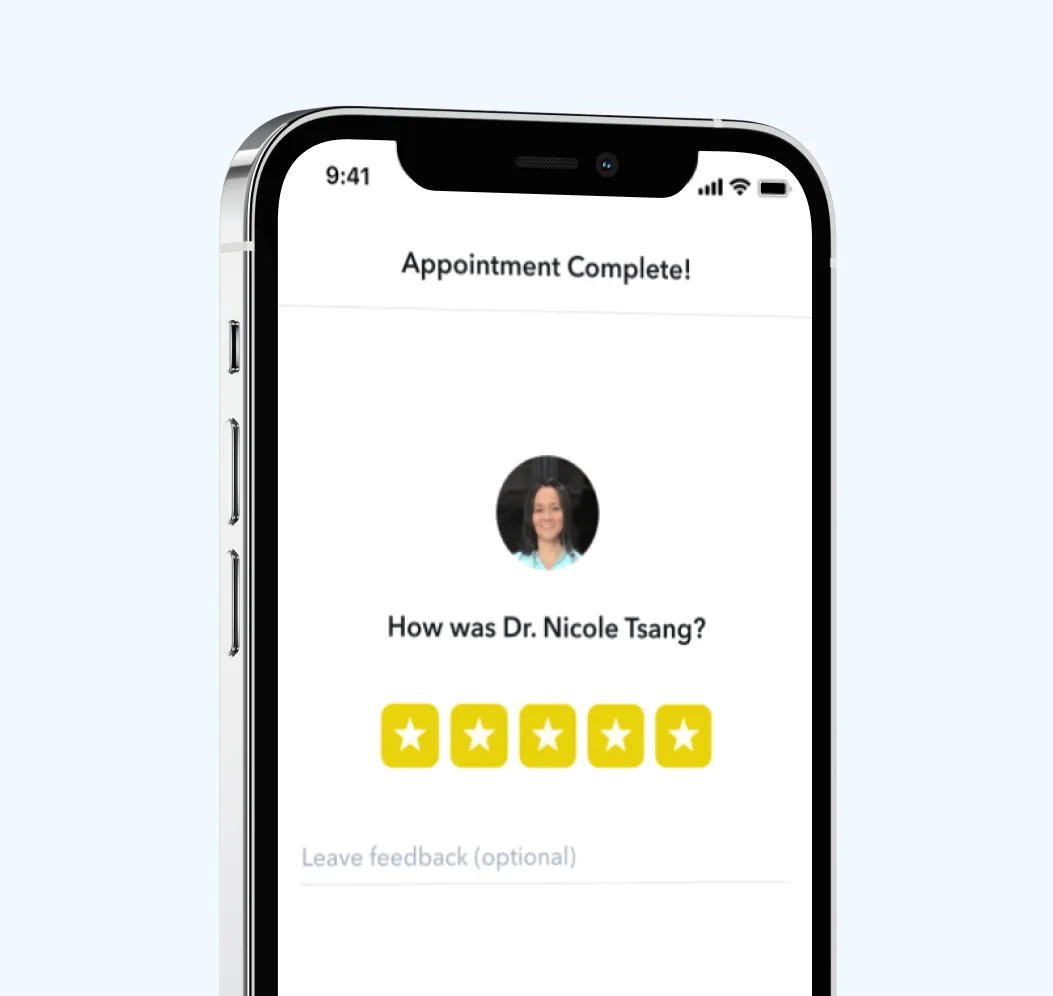All posts
Understanding Menopause Symptoms

Pinchieh Chiang, DO
Sep 30, 2025
5-8 minutes

Hot Flashes, Mood Swings, and More: Understanding Menopause Symptoms
Menopause is a natural stage of life, but it’s often kept in the shadows. Too many women feel they have to face confusing changes in silence, wondering if what they’re experiencing is “normal.” That silence can be isolating, but it doesn’t have to be. Open conversations about menopause matter because they validate every woman’s experience and make space for care, compassion, and knowledge.
By shining a light on the symptoms of menopause and the range of treatment options available, we can replace uncertainty with clarity and fear with confidence.
At Circle Medical, our primary care doctors are here to listen, explain, and support with compassionate, evidence-based care, so women feel understood and empowered every step of the way.
Stages of Menopause: Perimenopause, Menopause, and Beyond
Menopause is not a single moment, but a journey through distinct stages that unfold differently for every woman. While it’s often defined as the end of menstrual cycles, marked by 12 consecutive months without a period, the path leading up to and beyond that milestone is varied and deeply personal.
- Perimenopause: This is the transitional phase that can begin in the early to mid-40s, though timing differs widely. Shifts in hormone levels may bring irregular periods, hot flashes, night sweats, or mood changes. For some, these early signs are subtle. For others, they can feel disruptive.
- Menopause: Official menopause begins once a woman has gone a full year without menstruation. Vasomotor symptoms like hot flashes and night sweats often peak in late perimenopause and the early postmenopause years, then gradually lessen for many.
- Postmenopause: Life after menopause often brings relief as symptoms ease. For others, hot flashes and night sweats may persist for several years (sometimes beyond seven) before improving. This stage also carries long-term health considerations such as bone loss, osteoporosis and heart disease, underscoring the importance of ongoing care and proactive wellness.
There is no “right” way to move through these stages. By understanding the phases of menopause and how they affect the body, you can better anticipate changes, seek support when needed, and take confident steps toward managing menopause symptoms with compassion and clarity.
What Are the Symptoms of Menopause? A Quick Guide
Menopausal symptoms can affect both the body and mind, showing up in ways that are unique to each woman. Here’s a quick checklist to help you recognize what you might experience:
| Category | Examples of Symptoms |
|---|---|
| Physical symptoms | Hot flashes and night sweats, irregular periods, vaginal dryness or discomfort, breast tenderness, and changes in weight or metabolism |
| Emotional and cognitive symptoms | Mood swings, anxiety, low mood, or memory and concentration issues (often described as “brain fog”) |
| Sleep-related changes | Nighttime hot flashes and restlessness that lead to fatigue during the day |
| Long-term health considerations | Bone loss, increased risk of osteoporosis and heart disease, and shifts in metabolic health over time |
Some women may experience only mild menopausal symptoms, while others may find them more disruptive. The key is knowing what to look for and feeling empowered to seek help when menopause symptoms begin to affect daily life.
How Menopause Affects Quality of Life, and What You Can Do
Symptoms of menopause often ripple through daily life in ways that go beyond the physical. Nighttime hot flashes can steal restful sleep, leaving you drained at work or short on patience at home. Vaginal dryness or discomfort may affect intimacy, while mood swings and memory lapses can challenge confidence and connection in relationships. Even small shifts can add up, influencing how you feel about yourself and how you show up for others.
Acknowledging these changes is the first step. Menopause is not something you simply have to endure. It’s an experience you can navigate with support and care. Recognizing the impact on your quality of life opens the door to practical strategies, compassionate care, and treatment for menopause symptoms that help you feel more like yourself again.
Managing Menopause Symptoms: Lifestyle and Medical Approaches
There’s no single path through menopause, and care should always be personalized to your needs. Here are some of the most common approaches women explore:
Lifestyle Approaches
- Aim for adequate calcium and vitamin D (prefer food sources first) to support bone health. Your healthcare provider can advise if supplements are appropriate for you.
- Stay active with regular exercise to support heart health, manage weight, and boost energy.
- Practice stress management strategies such as mindfulness, yoga, or deep breathing.
- Focus on good sleep hygiene to ease fatigue from hot flashes and night sweats.
Complementary and Alternative Therapies
Some people pursue acupuncture, though evidence for reducing hot flashes is mixed and inconclusive. Herbal supplements or dietary supplements are also tried, but their safety and effectiveness vary, so it’s best to consult a healthcare provider first.
Medical and Evidence-Based Nonhormonal Treatments
- Cognitive behavior therapy (CBT): Proven to reduce how much menopause symptoms bother women and to support mood and sleep.
- Nonhormonal medications: Selective serotonin reuptake inhibitors (SSRIs) and serotonin-norepinephrine reuptake inhibitors can reduce hot flashes and help treat depression.
- Hormone Therapy (HT): The most effective treatment for vasomotor symptoms. Options include estrogen therapy, combined hormone therapy with estrogen and progesterone, or systemic hormone therapy delivered through skin patches, some vaginal rings, or oral medication. Menopausal hormone therapy can relieve menopause symptoms like hot flashes, vaginal dryness, and bone loss, but should always be discussed carefully with your provider.
Each option has benefits and considerations. Partnering with a healthcare provider helps ensure your treatment plan is safe, evidence-based, and designed to meet your unique needs.
Finding Support for Menopause: How Circle Medical Helps
The most effective way to manage menopause symptoms is through open, informed conversations with a trusted provider. Preparing for that dialogue can make your care more meaningful:
- Track your symptoms: Keep notes on hot flashes, irregular periods, vaginal discomfort, or other menopause symptoms that affect your daily life.
- Bring questions: Ask about hormone replacement therapy, natural hormones, non-hormonal options, or lifestyle strategies you’re curious about.
- Be open: Share how menopause symptoms affect you so your provider can see the full picture.
Advocating for yourself is an important step toward receiving the care you deserve.
At Circle Medical, our primary care doctors listen with compassion and provide evidence-based guidance. Through convenient telehealth visits, you can discuss your symptoms, explore safe and effective options to treat menopause symptoms, and create a personalized plan that supports both your immediate relief and long-term women’s health. From managing hot flashes and night sweats to addressing severe vaginal dryness or reviewing hormone therapy HRT options, our providers are here to walk with you every step of the way.
Circle Medical accepts many major payers, making high-quality care both accessible and affordable.
Taking Control of Your Menopause Journey
Menopause can bring its share of challenges, but it also marks a powerful moment to reconnect with your health and well-being. You are not alone. Your symptoms are real, valid, and treatable, and support is available.
With the right knowledge and compassionate care, you can relieve menopause symptoms, reduce hot flashes, protect your long-term health, and restore confidence in your daily life. Proactively seeking guidance from a healthcare provider puts you in the driver’s seat, allowing you to manage this transition on your terms.
Your story doesn’t end with natural menopause, it evolves. And with Circle Medical by your side, you’ll have a trusted partner to guide, support, and empower you every step of the way.
Circle Medical Providers must meet all of the following standards:
-
Exceptionally qualified in their field
-
Board-certified
-
Deeply empathetic for patients
-
Follows evidence-based care guidelines
-
Embracing of diverse patient backgrounds
-
Impeccable record of previous care
400+ Primary Care Providers.
100% Confidence.
No matter which Provider you choose, you will be seen by a clinician who cares deeply about your health and wants to help you live your happiest, healthiest life.
Circle Medical Providers are held to an exceptionally high standard of compassionate, evidence-based care.
Book Appointment

